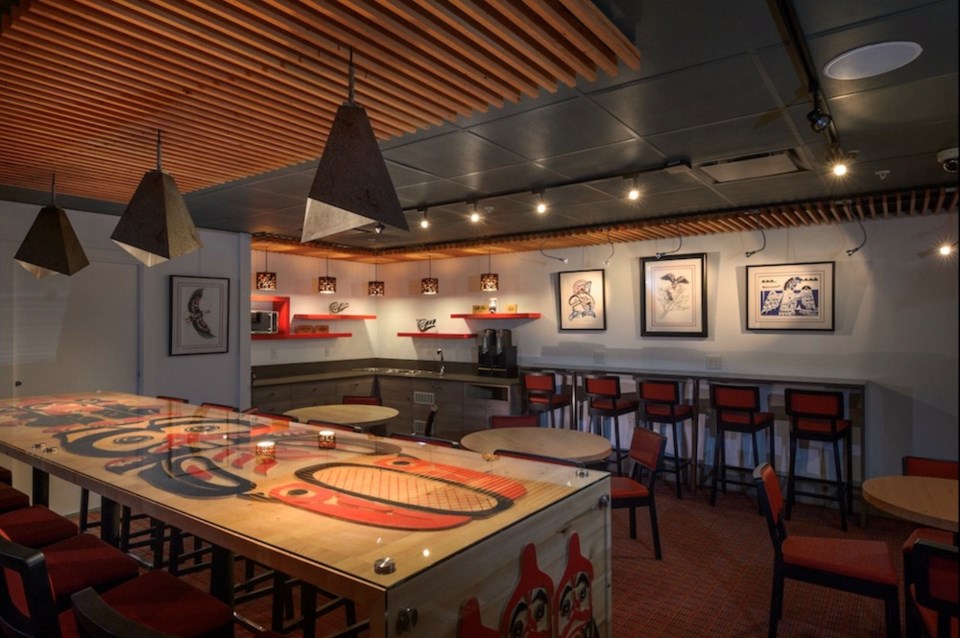Amidst the many individuals, groups and industries who've suffered during the COVID-19 pandemic, artists—and the arts and culture groups that support them—have undoubtedly been among those hit hardest.
More than a few of those groups received a helpful boost this week, as the provincial government announced nearly $2 million in arts infrastructure grants that will help fund 50 arts and culture organizations across British Columbia.
Included on that list are 26 Lower Mainland-based arts and culture groups that will use their newfound funds to purchase new equipment or improve their spaces, the province shared in a news release issued Friday, Jan. 22.
One of the recipients is Vancouver's African Friendship Society. The $65,000 grant it received is particularly important to the organization "because it will create the first dedicated cultural space for the Black and African populations in Vancouver," said Jacky Essombe, the society's artistic director, in the release.
The funding will be used to transform an existing storage space at Vancouver Opera into the new hub for African arts and culture, which will be dubbed Studio Bantu. It will serve as "a culturally safe space of healing and connection," where Vancouver's Black and African communities can gather—post-COVID, of course—"to preserve, celebrate and share their history, traditions, arts and culture." the province explained.
Meanwhile, other groups plan to use their grants to purchase much-needed equipment. For example, the Vancouver Native Housing Society's (VNHS) $28,000 grant will fund the creation of a mobile livestream studio that will be used to support Vancouver's urban Indigenous and artistic communities. According to the organization, having this equipment will help the artists in residence at Skwachàys—an Indigenous boutique hotel and gallery operated by the VNHS—teach, promote and sell their work remotely, while simultaneously offering the society’s tenants access to virtual cultural programming. Society staff say they hope to have the studio up and running by this spring.
“We have developed a concept that we call ‘Community Building Through the Transformative Power of Art,’ which guides and informs how we deliver services such as our Artist in Residence Program at Skwachàys," explained David Eddy, Vancouver Native Housing Society's CEO, in the release.
"We gratefully acknowledge this initiative supported by the BC Arts Council and the Province. It not only reinforces our goals and practice, but also adds to our ability to enhance what we achieve in all of our supportive programs.”
This funding is made available through B.C.'s Arts Infrastructure Program, administered by the BC Arts Council. As part of the program, arts and cultural organizations can receive up to $75,000 to improve their spaces and up to $40,000 to buy special equipment that will be used to support art programming within the province. Other local groups included in the latest round of recipients include Urban Ink Productions, City Opera Vancouver, Out Innerspace Dance Theatre, Vancouver Adapted Music Society, The Cultch, and the UBC Museum of Anthropology, to name just a few.
“Arts and culture groups operate vitally important spaces of belonging in communities throughout B.C., and this funding will help enhance their facilities so they can come back strong after the pandemic,” said Melanie Mark, B.C.'s minister of tourism, arts, culture and sport in the release.
“We’re supporting arts groups to upgrade their spaces, improve safety features, increase accessibility or buy equipment so they can continue to offer virtual programming and contribute to B.C.’s economic recovery.”
This announcement comes following another new support for B.C.'s arts community that the province unveiled earlier this month. On Jan. 12, the B.C. government announced it is creating a new "Pivot for Individuals" program through the BC Arts Council in an effort to help professional artists, cultural workers and arts administrators adapt to the many challenges posed by the COVID-19 pandemic. Through this program, artists can apply for grants of up to $12,000 to learn new skills or adapt their practices. The province plans to dole out a total of $500,000 as part of this initiative.



